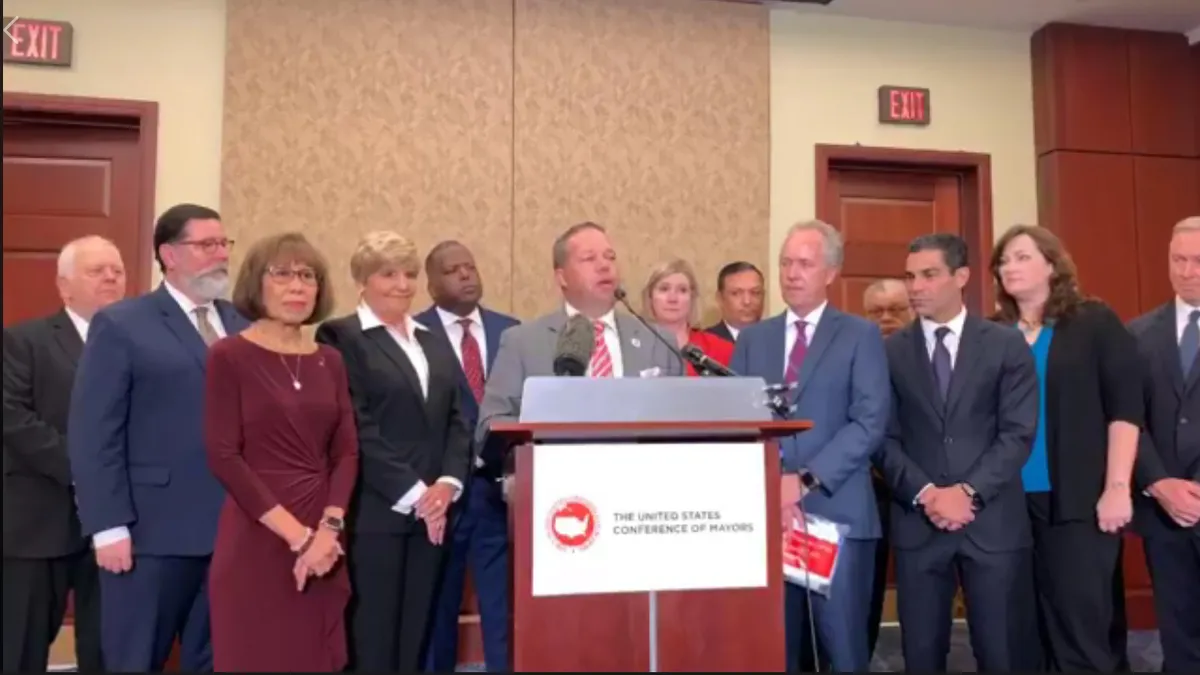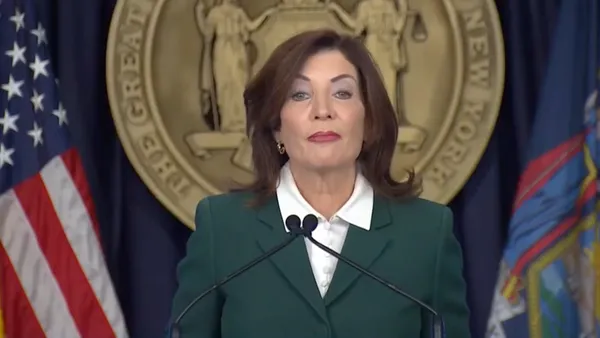Dive Brief:
- The U.S. Conference of Mayors (USCM) has ramped up its calls for Congress and the White House to pass universal background check legislation and other measures to reduce gun violence.
- Several members of the group were in Washington, DC this week to personally lobby elected officials, following up on a letter calling for legislation they sent last month. At a press conference Monday, the mayors said a meeting with Trump administration officials was "constructive," but they did not share details of any policies.
- While the debate is all happening on the federal level, the mayors say their voice is crucial because cities directly deal with the aftermath of gun violence. USCM President and Rochester Hills, MI Mayor Bryan Barnett said it was a priority for the organization, saying it was rare for that many mayors to be on board with one piece of legislation. "For mayors, this crisis is personal," he said.
Dive Insight:
In the aftermath of deadly shootings last month in El Paso, TX and Dayton, OH, more than 250 mayors sent a letter to U.S. Senators asking that they bring up House-passed legislation that would tighten background checks.
The visit, coming as Congress returned from its August recess, added to the public pressure. Senate Majority Leader Mitch McConnell has said he will only bring up legislation that President Trump will sign, and the White House has not yet articulated a position.
In the absence of action from Washington, some cities have embraced technology and innovative strategies to combat gun violence.
Roughly 100 cities use ShotSpotter, a network of sensors that detect audio of gunshots and notify police within 60 seconds. Athena Security has an artificial intelligence (AI) system that uses internet-connected cameras to pick up an image of a gun and notify police. Others have passed laws to limit certain gun purchases or strengthen restrictions on background checks.
However, cities must also contend with state laws that can prevent meaningful action. The New York Times reports that 43 states have preemption laws that address gun laws, limiting what local jurisdictions can do. In Kentucky, it is a misdemeanor for a city official even to vote for a gun ordinance that goes beyond state laws.
Louisville, KY Mayor Greg Fischer said that as Congress fails to act, his city has enacted a "sad" strategy of training public safety officials and citizens on how to use a trauma kit. "People appreciate the practical advice," he said, "but then they ask the question, 'Is this the country we’re living in?'"











